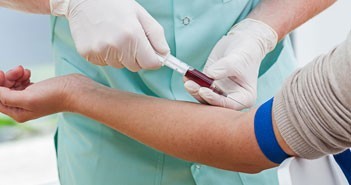Potential new test for detecting HPV-related cancers

A recently published study from researchers at Johns Hopkins Medicine (MD, USA) investigates the feasibility of new blood and saliva tests, which, although in early stages of development, may help accurately predict recurrences of HPV-linked oral cancers.
Joseph Califano, professor of Otolaryngology – Head and Neck Surgery, member of the Johns Hopkins Kimmel Cancer Center and medical director of the Milton J. Dance Jr. Head and Neck Center at the Greater Baltimore Medical Center, and one of the authors of the study, explained the significance of the work: “There is a window of opportunity in the year after initial therapy to take an aggressive approach to spotting recurrences and intensively addressing them while they are still highly treatable. Until now, there has been no reliable biological way to identify which patients are at higher risk for recurrence, so these tests should greatly help do so.”
HPV-16 is a known causative factor in oropharyngeal squamous cell carcinoma and patients with this type of cancer are usually examined every few months in their first year post-diagnosis. However, detection of cancer recurrence is often delayed owing to the challenging anatomy of the oropharynx.
Therefore, in this retrospective analysis of a prospectively collected cohort, the researchers collected pre- and post-treatment samples of blood and saliva from oropharyngeal cancer patients (n = 93) who were treated with surgery, radiation alone, or combined chemotherapy and radiation. In total, 81 patients had HPV-16-positive tumors, while the remaining 12 patients had HPV-16-negative tumors.
The researchers found that positive post-treatment saliva HPV status was associated with higher risk of recurrence (hazard ratio [HR], 10.7; 95% CI, 2.36–48.50) (P = .002), as well as reduced overall survival (HR, 25.9; 95% CI, 3.23–208.00) (P = .002). They also noted that finding HPV-16 DNA in both blood and saliva samples post-treatment accurately predicted recurrence within 3 years, 69.5% of the time.
Although the study provided promising results, Califano added that further research is needed as HPV is highly prevalent in our bodies.
Source: Ahn SM, Chan JY, Zhang Z et al. Saliva and plasma quantitative polymerase chain reaction-based detection and surveillance of human papillomavirus-related head and neck cancer. JAMA Otolaryngol. Head Neck Surg. DOI: 10.1001/jamaoto.2014.1338. (2014) (Epub ahead of print).




